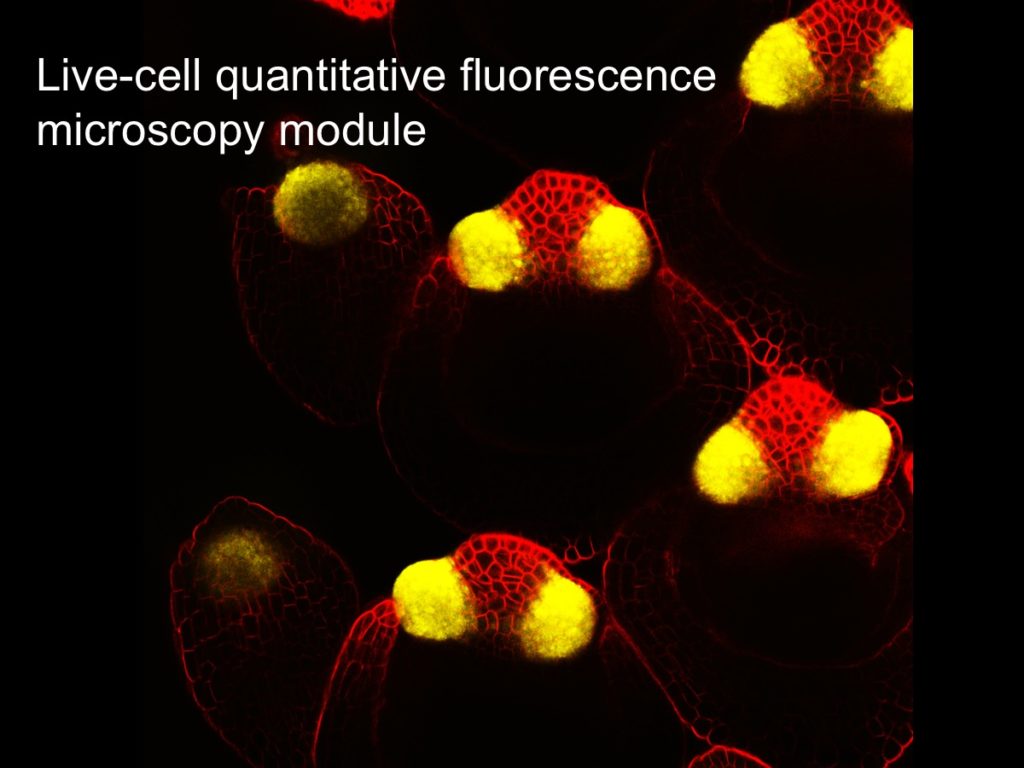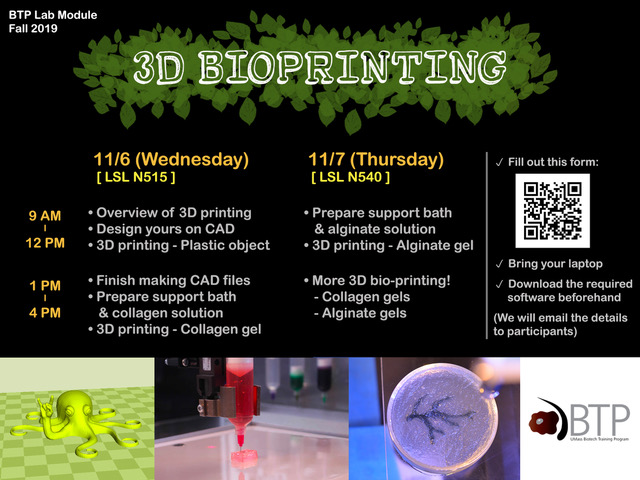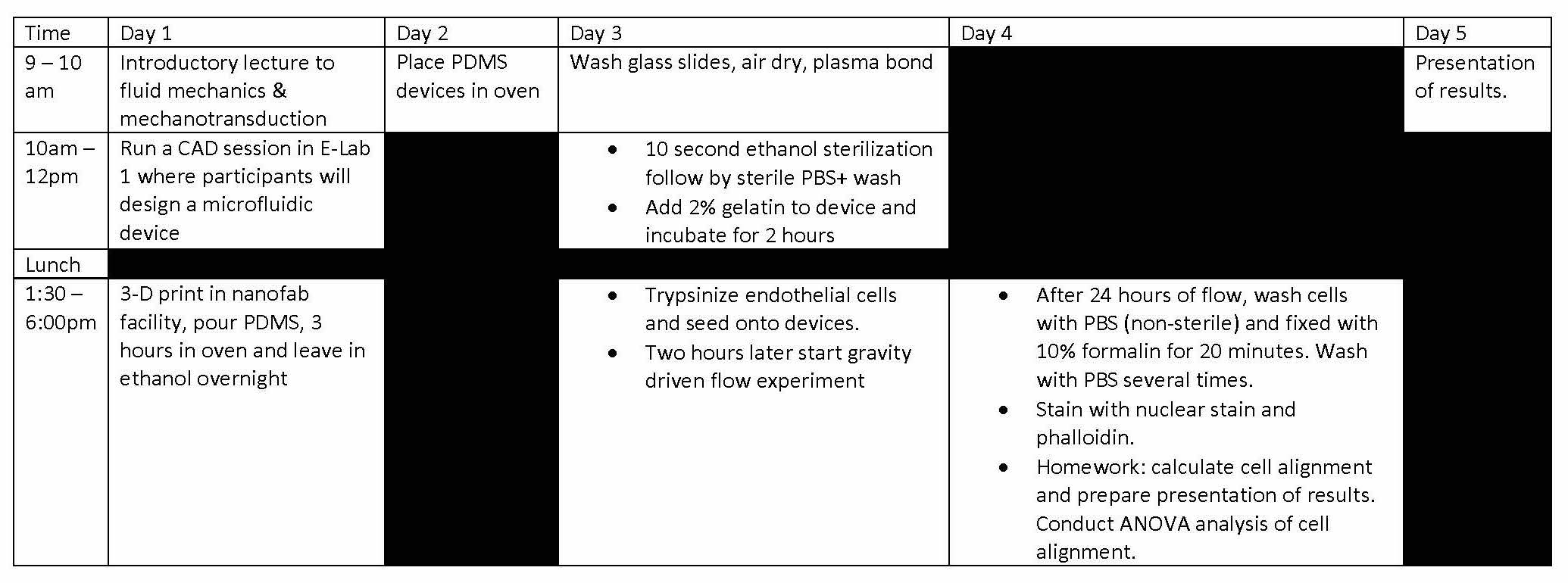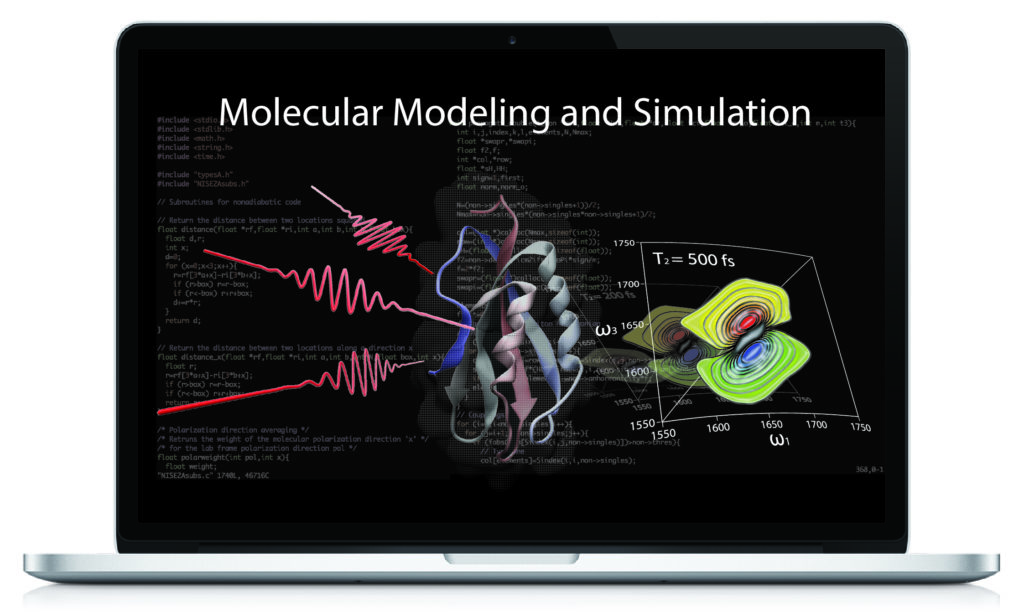In 2019, CBI partnered with UMass BTP (Biotech Training Program) to create Laboratory Modules designed to take advantage of the many new state-of-the-art facilities and instruments in the UMass Institute for Applied Life Sciences (IALS Core Facilities). These 2-3 day modules provide hands-on training and experience for graduate students, post-docs, and professors across chemistry, biology, chemical engineering, microbiology, and biochemistry departments. CBI trainees complete 4 laboratory modules of their choice as part of their training, providing the opportunity to explore new techniques, enhance their current research, and gain training for their post-PhD careers. IALS-focused modules are listed below; for all offerings, see BTP listing of all Lab modules.
Fall 2019:
Live-cell quantitative fluorescence microscopy

This lab module will introduce fundamental concepts of fluorescence microscopy using living tissue culture cells. After learning about the principles, strengths, and weaknesses of different approaches, participants will apply and compare wide-field fluorescence imaging, spinning disk and point scanning confocal imaging, and structured illumination microscopy (SIM) super-resolution imaging – all on living samples. Participants will learn how to control multiple microscopy systems (hardware) using the NIS-Elements software platform. The training will also include quantitative image analysis of data acquired in the module.
Instructor(s): Tom Maresca, Biology Associate Professor and James Chambers, Director of Light Microscopy Core Facility
Dates/times: December 12th (9AM-4PM) and 13th: (9AM-4:30PM)
Location: Nikon Center of Excellence, S576A Life Science Laboratories
Max number of participants: 6-10
Sign up: email cbiassist@umass.edu until max capacity
Introduction to 3D Printing
3D bioprinting of cellularized constructs has enabled the reconstruction of organs, revascularization of blood vessels, and other tissue engineering applications that require complex geometries. Traditional FDM 3D printing is limited by the presence of support materials that restrict the design process. This BTP module will cover the limitations and solutions to FDM printing that enable bioprinting of complex structures not restricted to this degree of freedom. The training will introduce FDM 3D printing, via hands-on CAD and plastic printing, and culminate in bioprinting with alginate and collagen constructs, which will begin with a material preparations module.
Instructors: Katharine Bittner, Duy Nguyen, Hyuna KimDates/Times: 11/6 – 11/7 (9:00am – 5:00pm)Location: Life Science Laboratories N515 & N540
Max number of participants: 6Sign up: email cbiassist@umass.edu until max capacity

Summer 2019
Designing & Building Fluidic Devices for Biomedical Research
Microfluidic devices have become popular commercial on-site medical diagnostic tests and in the research realm have played an important role in elucidating biological mechanisms. This module will use microfluidic devices to introduce participants to the basics of mechanotransduction in biology and medicine. this module will cover basic topics in vascular biology and fluid dynamics. Students will design and develop fluidic devices that can be used for flowing blood, growing cells in culture and expose them to fluid forces mimicking mechanical cues experienced in vivo.
Instructor: Dr. Juan Jimenez (Mechanical and Industrial Engineering)
Dates/Times: June 17-21, About 2 – 3 hours per day (see schedule)

Location: LSL N575, N560
Max number of participants: 5
Sign up: email cbiassist@umass.edu; deadline: when max capacity is filled.
Molecular Modeling and Simulation Using Computational Approaches

Molecular modeling and simulation provide crucial insights into the structure, dynamics, and interactions of various systems at the molecular level, to both complement and enrich experimental measurements. This lab module training will introduce basic theories of popular modeling and simulation approaches, including molecular visualization, molecular dynamics simulation, quantum chemistry calculation, and molecular docking. The training also provides hands-on tutorials of widely-used software packages.
Instructor: Chungwen Liang (Director, IALS Computational Modeling Core)
Dates/Times: 8/2, 8/5 (9:00 am ~ 5:00 pm)
Location: Biology Computer Resource Center, 311 Morrill Science Center, Building III South
Max number of participants: 20
Sign up: email cbiassist@umass.edu until max capacity